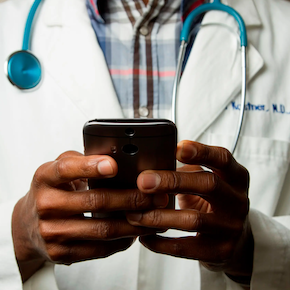News
Video
Arshad Khanani, MD: First Results from Fellow Eye Dosing of RGX-314 in nAMD
Author(s):
Key Takeaways
- ABBV-RGX-314 gene therapy showed a 97% reduction in annualized anti-VEGF injection needs at 9 months for wet AMD patients.
- The therapy maintained best-corrected visual acuity and central retinal thickness, with 78% of patients remaining injection-free.
At AAO 2024, Khanani discussed data showing a 97% reduction in annualized injection needs at 9 months with RGX-314 gene therapy.
Positive data from a Phase 2 sub-study presented at the 128th Annual American Academy of Ophthalmology (AAO) Meeting demonstrated the potential of subretinal ABBV-RGX-314 gene therapy for bilateral neovascular (wet) age-related macular degeneration (AMD).
These results indicated a reduction in the treatment burden for patients with wet AMD who rely on frequent anti-vascular endothelial growth factor (VEGF) with a notable 97% reduction in annualized injection needs at 9 months with RGX-314 treatment.
In an interview with HCPLive, presenter Arshad Khanani, MD, director of clinical research at Sierra Eye Associates, described how RGX-314 could represent a transformative shift in managing the debilitating eye condition.
“ABBV-RGX-314 is the first subretinal gene therapy program with neovascular AMD that we have dosed both eyes and what we have seen is a good safety profile, with no new safety signals, as well as efficacy in terms of 78% of patients being injection-free, a 97% treatment burden reduction, 100% of patients requiring zero or one injection, as well as good protein production,” Khanani told HCPLive.
The Phase 2 fellow eye substudy involved 9 patients who received ABBV-RGX-314 (1.3 x 1011 GC/eye) in a single eye and subsequently chose to treat their fellow eye approximately one year or later after initial administration. Before RGX-314 administration, these patients had a high treatment burden in the fellow eye and had received an average of nine anti-VEGF injections in the year before the study.
This RGX-314 dose is currently being studied in ongoing pivotal trials and is similar to one of the doses evaluated in the Phase 1/2a trial, which demonstrated durable treatment effects for up to four years.
At the 9-month mark post-RGX-314 administration, key results showed a 97% reduction in the annualized anti-VEGF treatment need, while 100% of patients required 0 or 1 supplemental injection. Approximately 78% of patients remained completely injection-free.
Markers of best-corrected visual acuity (BCVA) and central retinal thickness (CRT) were sustained at 9 months. RGX-314 produced similar levels of aqueous proteins for both treated eyes.
Safety data as of September 2024 revealed RGX-314 was well-tolerated in the fellow eye, without drug-related serious adverse events (SAEs). There were no cases of intraocular inflammation, chorioretinitis, vasculitis, occlusion, or hypotony observed, and no prophylactic steroids were required in the trial.
“I feel that this data is a milestone for the gene therapy for neovascular AMD because we know that neovascular AMD is a bilateral disease in many of our patients,” Khanani told HCPLive.
Disclosures: Relevant disclosures for Khanani include Abbvie, Apellis, Genentech, Iveric Bio, Regeneron, REGENXBio, and more.
References
Khanani AM. Subretinal Delivery of Investigational ABBV-RGX-314 as a Gene Therapy for nAMD: First Time Results of a Fellow Eye Bilateral Dosing Study. Presented at the American Academy of Ophthalmology (AAO) 2024 Meeting. Chicago, Illinois. October 18-21, 2024.
REGENXBIO presents positive data from the phase II study of subretinal ABBV-RGX-314 in patients with bilateral wet AMD at AAO 2024. Regenxbio Inc. October 21, 2024. Accessed October 23, 2024. https://ir.regenxbio.com/news-releases/news-release-details/regenxbio-presents-positive-data-phase-ii-study-subretinal-abbv.





